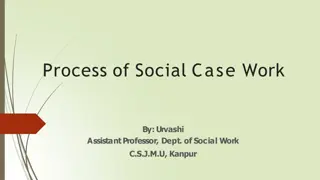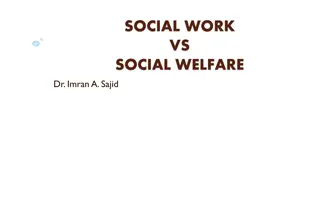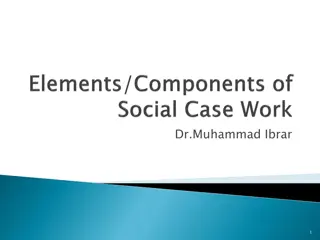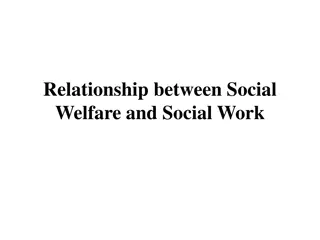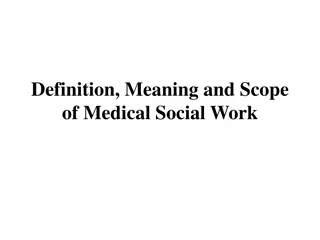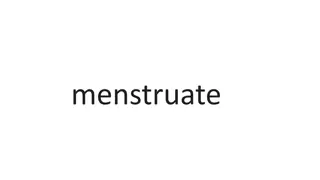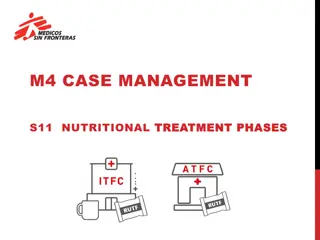Phases and Steps of Social Case Work Process
Social case work process involves three main phases: Social Study, Social Diagnosis, and Social Treatment. The Social Study phase focuses on acquiring facts about the client's situation, while Social Diagnosis involves the professional opinion of the case worker towards a solution. Social Treatment includes various forms of assistance such as the administration of practical services, environment manipulation, and direct treatment.
Download Presentation

Please find below an Image/Link to download the presentation.
The content on the website is provided AS IS for your information and personal use only. It may not be sold, licensed, or shared on other websites without obtaining consent from the author.If you encounter any issues during the download, it is possible that the publisher has removed the file from their server.
You are allowed to download the files provided on this website for personal or commercial use, subject to the condition that they are used lawfully. All files are the property of their respective owners.
The content on the website is provided AS IS for your information and personal use only. It may not be sold, licensed, or shared on other websites without obtaining consent from the author.
E N D
Presentation Transcript
Phases/Steps of Social Case Work Process
Social case work process is divided into three phases 1. Social study 2. Social diagnosis 3. Social treatment These phases have been recognized since the publication of Mary Richmond s monumental study social diagnosis in 1917.
Social Study The study of the case mean acquiring facts about the situation. It begins with intake when the client first applies to the agency for help and continues throughout the agency s contact with the client. The case worker is from the beginning involved in a fact-finding mission. He studies in detail the nature and extent of the problem and its social and personal implications. From a close study of the problem, the social case worker tries to find out whether the problem is the result of personal incompetency or environment factors or both. In getting the required information, the first and the best person to give it is the client himself and secondary sources of information may be relatives, friends and institutions etc. The nature of the client s problem must be studied in all its aspects but with special reference to causation, extent and intensity.
Social Diagnosis Diagnosis is the case worker s professional opinion about the problem, indication the lines of approach towards a solution. Diagnosis is a scientific, frank and realistic appraisal of the needs of the client, using the relevant data available. This professional opinion is the product of the disciplined functioning of the case worker seeking to gain an insight into the behavior and inner conflicts of the client. On the basis of the study of the problem, the client s positive and relative reactions and environmental factors, the case worker makes an assessment of the client-problem situation. This study of the case worker is purposeful and leads to a diagnosis which becomes the basis of problem-solving effort. Diagnostic interpretation links study and treatment in a continuous process and is revised from time to time on the basis of fresh information.
Social Treatment What the case worker does, after studying and understanding the problem, has been variously described as treatment, helping process, rendering services etc. Miss Gordon Hamilton has given the following classification of social treatment. Administration of practical Services Environment Manipulation Direct Treatment .
Administration of practical Services This is the oldest form of case work treatment which was formerly called as the leadership type of case work and is currently referred to as administration of a social service. Here the client is helped to obtain some specific service or material assistance so as to enable him to function effectively. Environment Manipulation It refers to case worker s remedial efforts to reduce the stress and strain through environmental changes so that a client may experience a more normal and healthy growth. Direct Treatment In direct treatment process, the focus is on the client and the case worker works directly with the person because the root of the problem may be found in the person himself. This kind of direct help is mainly psychological in nature because the problem is one of defective functioning of the person.
Reference: Khalid, M. (2008). Social Work Theory and Practice: with special reference to Pakistan.5thed). Kifayat Academy, Lahore




